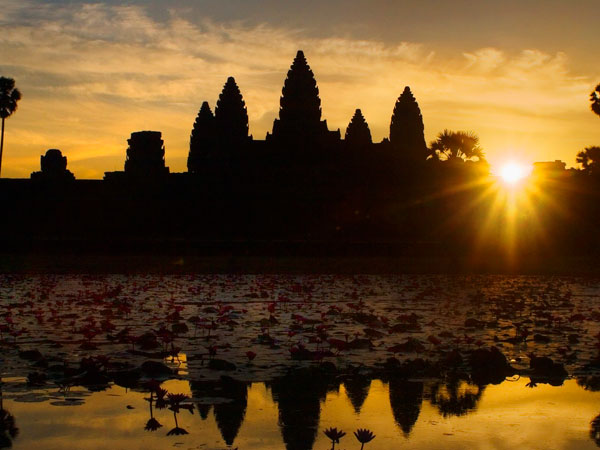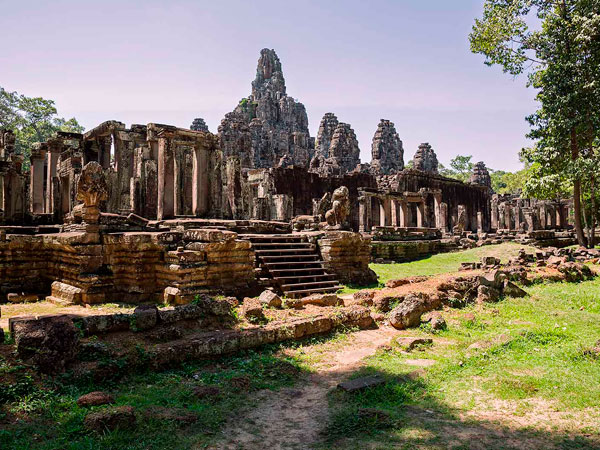Location: North of Angkor Thom
Construction period: Late 12th century C.E.
Religion: Buddhist
Built by: King Jayavarman VII
Building style: Bayon
Preah Khan, which means 'royal sword’ (sometimes ‘sacred sword’) is one of the few temples on the typical tour route which has been left in a largely unreconstructed state, though it has been cleared of a lot of the vegetation which had overgrown it. Found just to the north of Angkor Thom, is a big, easily-explored complex, with large trees, moss and dark stone corridors. With a wealth of carvings and many photo opportunities, it is great for those who want the Indiana Jones experience without having to stray too far into the jungle.
There are networks of smaller passages, which open onto colonnades, courtyards and rooms of all sizes. The central portion of the structure is fairly open, but exploring the outer passageways becomes increasingly difficult because of fallen stones, tree roots and tiny openings leading into almost completely dark interiors.
History of Preah Khan
Originally built as a Buddhist monastery and school, it had over 1000 monks in residence. It also was the residence of King Jayavarman VII while the royal city of Angkor Thom was being built. Preah Khan is dedicated to the father of Jayavarman VII, and is architecturally similar to Ta Prohm Temple, which was dedicated to his mother.
Like other Buddhist temples of the time, many of the Buddha images were destroyed and defaced in the later resurgence of Hinduism in the Khmer Empire. However, many bas-reliefs remain in extremely good condition. You will also find large snake-like naga statues, held by garudas (a sort of humanoid bird from Hindu and Buddhist mythology) at regular intervals around the complex’s outer wall, with more nagas by the entrances.








